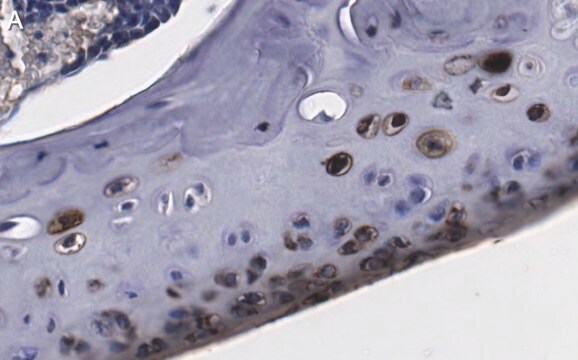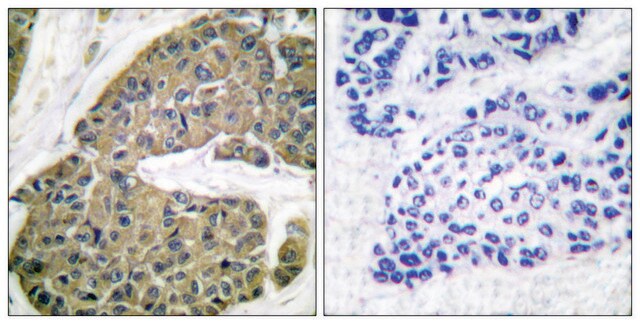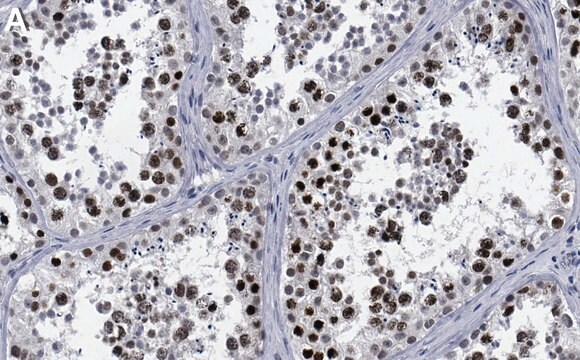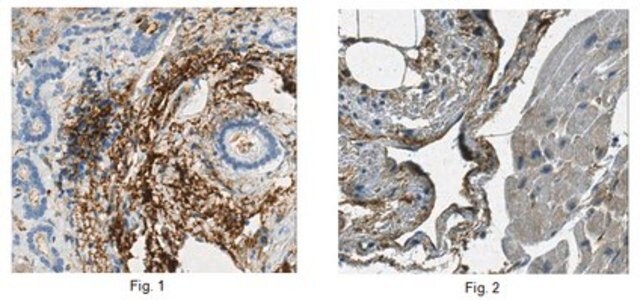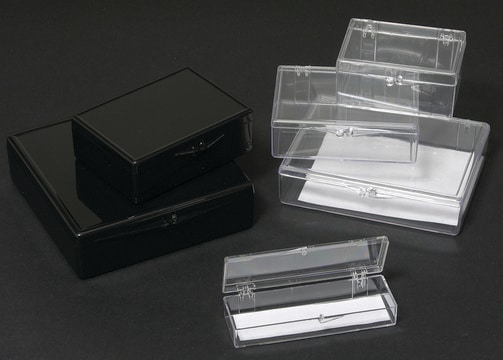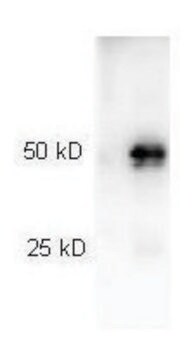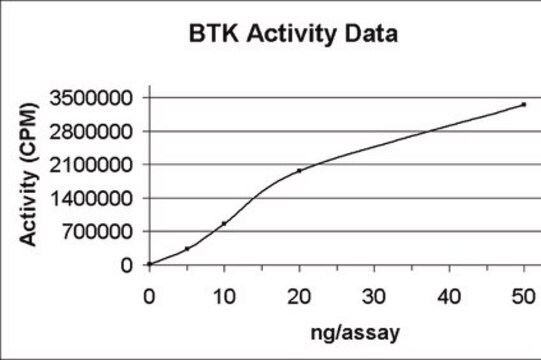General description
We are committed to bringing you greener alternative products, which adhere to one or more of The 12 Principles of Green Chemistry.This antibody is Preservative-free, produced without the harm or sacrifice of animals and exceptionally stable to allow for ambient shipping and storage if needed and thus aligns with "Waste Prevention", "Designing Safer Chemicals" and "Design for Energy Efficiency".
Click here for more information.
ZooMAb® antibodies represent an entirely new generation of recombinant monoclonal antibodies.Each ZooMAb® antibody is manufactured using our proprietary recombinant expression system, purified to homogeneity, and precisely dispensed to produce robust and highly reproducible lot-to-lot consistency. Only top-performing clones are released for use by researchers. Each antibody is validated for high specificity and affinity across multiple applications, including its most commonly used application. ZooMAb® antibodies are reliably available and ready to ship when you need them.
Specificity
Clone 9G3 is a ZooMAb® Mouse recombinant monoclonal antibody that detects Lubricin (Proteoglycan 4).
Immunogen
Recombinant human Lubricin/Proteoglycan 4
Application
Quality Control Testing
Evaluated by Western Blotting in human Synovial Fluid.
Western Blotting Analysis: A 1:50,000 dilution of this antibody detected Lubricin/PRG4 in human Synovial Fluid.
Tested Applications
Immunohistochemistry (Paraffin) Analysis: A 1:100 dilution from a representative lot detected Lubricin/PRG4 in human cartilage tissue sections.
Immunofluorescence Analysis: A 1:100 dilution from a representative lot detected Lubricin/PRG4 in human cartilage tissue sections.
Note: Actual optimal working dilutions must be determined by end user as specimens, and experimental conditions may vary with the end user
Target description
Proteoglycan 4 (UniProt: Q92954; also known as Lubricin, Megakaryocyte-stimulating factor, Superficial zone proteoglycan) is encoded by the PRG4 (also known as MSF, SZP) gene (Gene ID: 10216) in human.Proteoglycan 4 is a heavily O-glycosylated, secreted, mucin-like protein that is synthesized with a signal peptide (aa 1-24), which is subsequently cleaved off to generate the mature form (aa 25-1404) that can be further cleaved into a C-terminal part (aa 1307-1404). It is highly expressed in synovial tissue, cartilage, and liver. It is weakly expressed in heart and lung. It is reported to play a role in boundary lubrication within articulating joints and prevents protein deposition onto cartilage from synovial fluid by controlling adhesion-dependent synovial growth and inhibiting the adhesion of synovial cells to the cartilage surface. Human lubricin contains two mucin-like domains. The first mucin domain contains multiple copies of the peptide motif KEPAPTTT, with threonine residues that are critical for O-linked GalNAc-Gal-NeuAc side chains. The second mucin-like domain is also threonine rich but does not contain the KEPAPTTT motif. It also contains a hemopexin-like (PEX) domain at its C-terminal that is suggested to be essential for extracellular matrix binding. Lack of proteoglycan 4 expression leads to premature joint failure. Its low concentration in synovial fluid following an injury is associated with increased cartilage damage and may play a role in development of osteoarthritis. Proteoglycan 4 is reported to reduce neuroinflammation and protect the blood-brain barrier after traumatic brain injury. It restores blood-brain barrier function and prevents post-traumatic loss of tight junction protein claudin 5 and reduces neuronal death. This ZooMAbZooMAb® recombinant monoclonal antibody, generated by our propriety technology, offers significantly enhanced specificity, affinity, reproducibility, and stability over conventional monoclonals. (Ref.: Bennett, M., et al. (2021). J. Neurotrauma. 38(4); 385-398; Iqbal, SM., et al. (2016). Sci. Rep. 6; Article 18910).
Physical form
Purified recombinant mouse monoclonal antibody IgG, lyophilized in PBS with 5% Trehalose, normal appearance a coarse or translucent resin. The PBS/trehalose components in the ZooMAb formulation can have the appearance of a semi-solid (bead like gel) after lyophilization. This is a normal phenomenon. Please follow the recommended reconstitution procedure in the data sheet to dissolve the semi-solid, bead-like, gel-appearing material. The resulting antibody solution is completely stable and functional as proven by full functional testing. Contains no biocide or preservatives, such as azide, or any animal by-products. Larger pack sizes provided as multiples of 25 μL.
Reconstitution
300 μg/mL after reconstitution at 25 μL per vial. Please refer to guidance on suggested starting dilutions and/or titers per application and sample type.
Storage and Stability
Recommend storage of lyophilized product at 2-8°C; Before reconstitution, micro-centrifuge vials briefly to spin down material to bottom of the vial; Reconstitute each vial by adding 25 μL of filtered lab grade water or PBS; Reconstituted antibodies can be stored at 2-8°C, or -20°C for long term storage. Avoid repeated freeze-thaws.
Legal Information
ZooMAb is a registered trademark of Merck KGaA, Darmstadt, Germany
Disclaimer
Unless otherwise stated in our catalog or other company documentation accompanying the product(s), our products are intended for research use only and are not to be used for any other purpose, which includes but is not limited to, unauthorized commercial uses, in vitro diagnostic uses, ex vivo or in vivo therapeutic uses or any type of consumption or application to humans or animals.

